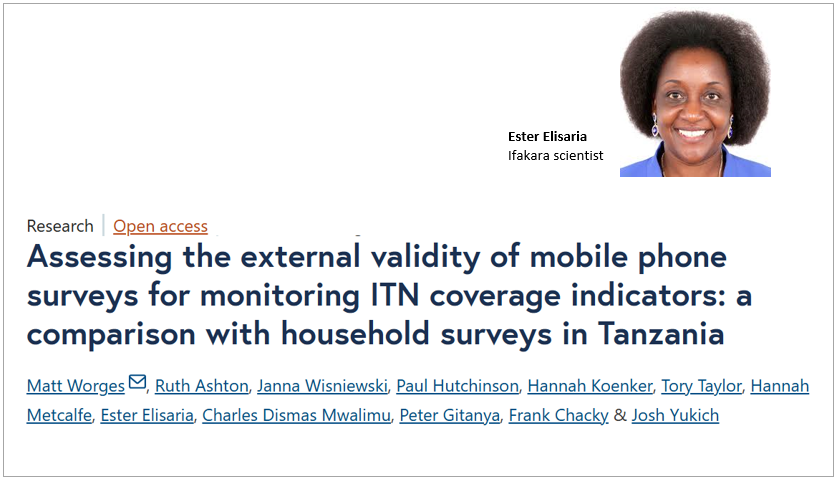
HEALTH INNOVATION: Mobile phone surveys could help track mosquito net use in Tanzania

A new study suggests that mobile phones could provide a faster and cheaper way to monitor mosquito net use in Tanzania, supporting malaria programs to track progress in the fight against the disease.
The study, published in Malaria Journal, was carried out by scientists from Tanzania and international partners. Among them is Dr. Ester Elisaria, a seasoned researcher at the Ifakara Health Institute. Other contributors include experts from the Ministry of Health in Tanzania, Tulane University (USA), and the University of North Carolina at Chapel Hill (USA).
By directly comparing household and phone-based surveys, the team assessed how reliable mobile methods could be for monitoring malaria prevention tools like insecticide-treated nets (ITNs).
Traditional surveys leave data gaps
Traditionally, health officials rely on large-scale national household surveys—such as the Malaria Indicator Survey and Demographic and Health Survey—to measure how many families own and use insecticide-treated nets (ITNs).
These surveys provide highly reliable information on ITN ownership and use. However, they are expensive and only carried out every few years, creating delays in up-to-date data that malaria programs urgently need.
Testing mobile phones as a faster alternative
With mobile phone ownership growing rapidly in Tanzania, researchers tested whether phone-based surveys (MPS) could fill the gap. They conducted mobile surveys in 2017 and 2022 alongside national household surveys and compared the results.
Findings show underestimation but consistent patterns
The analysis showed that mobile phone surveys consistently reported lower levels of mosquito net ownership and access—by around 7 to 8 percentage points—than household surveys. However, one important indicator—whether households had one net for every two people—was almost identical across both methods.
A complement, not a replacement
While the study concludes that mobile phone surveys cannot fully replace national household surveys, they could still provide valuable insights. Because they are cheaper and quicker to conduct, MPS may act as an early warning system for declining net coverage in between the larger, less frequent surveys.
“While this underestimation limits their use as a direct substitute, MPS may still offer timely, conservative signals of declining coverage where other data are delayed or unavailable,” the researchers noted.
They added that with further validation and adjustments for bias, mobile phone surveys could play an important role— “not as a substitute, but as a complement to traditional monitoring approaches, especially in contexts where rapid data are needed to guide programme decisions.”
Read the publication here.
